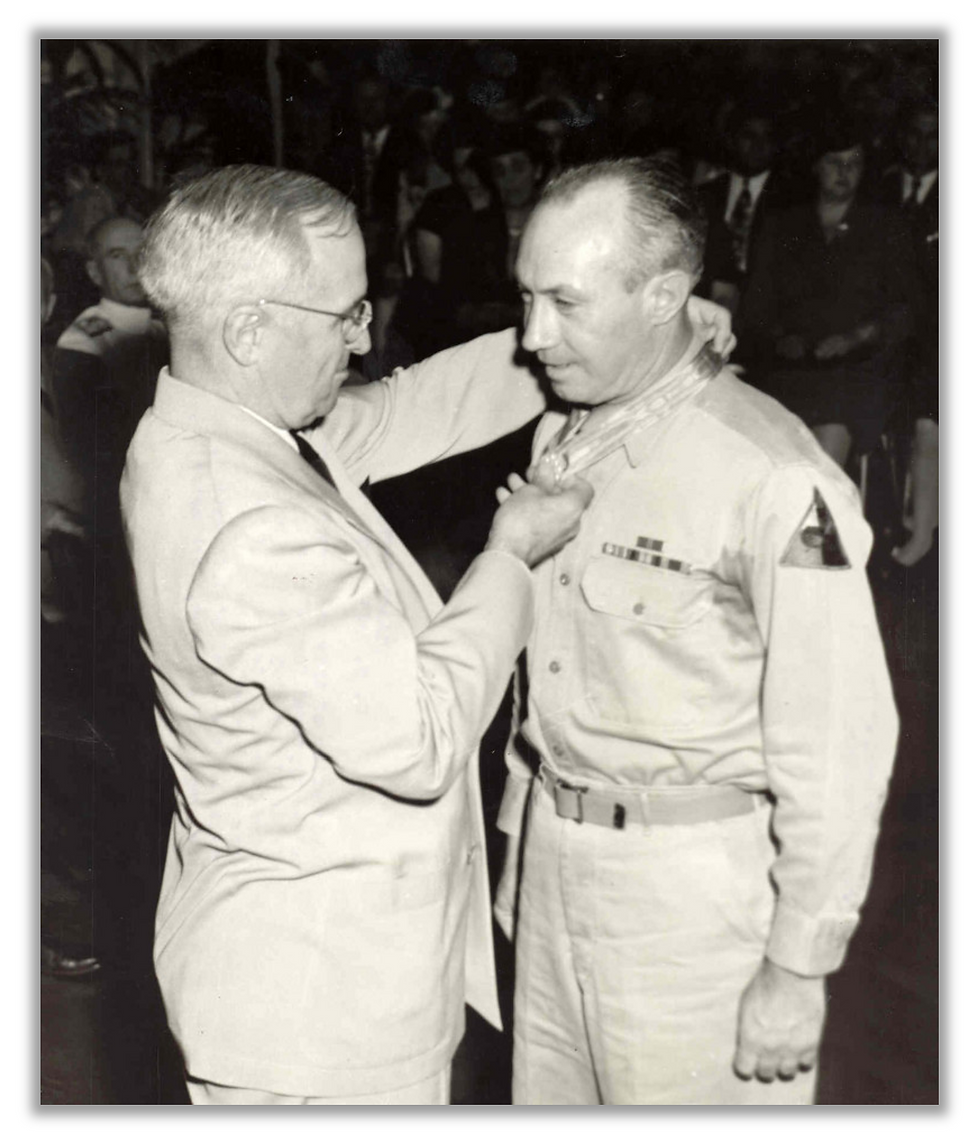This Day in History: George Turner's bravery in France
- tara
- Jan 3, 2022
- 3 min read
Updated: May 6, 2024
On this day in 1945, a hero engages in an action that would earn him the Medal of Honor. At the age of 45, Pfc. George Benton Turner was a veteran of both World Wars. Thus, his action on this day so long ago would make him one of our older Medal recipients.
Turner was still a private first class because he’d repeatedly turned down promotions.

“I tried several times to have him accept a promotion but he always refused,” his commanding officer Curtis R. Thomas later wrote. “He knew if promoted he would probably be moved back from front-line action . . . . Every time I mentioned it he would ask me, not as his section officer but as a friend, to please forget it.”
Turner’s Medal action came on January 3, 1945, near Philippsbourg, France. He was then acting as a forward observer, but he got cut off from his unit by an enemy armored infantry attack.
This was one soldier who didn’t like to miss out on the action, you might recall. Turner instead joined one of our infantry companies, which was then retreating. Just then, he saw two German tanks rolling down the main street of the village. The tanks were accompanied by up to 75 enemy soldiers.
Turner leapt into action, seizing a rocket launcher and standing in the middle of the road. He fired at the tanks, even as small-arms fire and cannon fire crashed around him. He destroyed one tank and disabled the second. He next turned his attention to the enemy soldiers, seizing a light machine gun and firing from the hip.
In the meantime, enemy antitank fire had disabled two American tanks nearby. One was on fire, but Turner ran forward. Americans were trapped, and he had to help. Some of the ammunition onboard the tank exploded, wounding him.
Naturally, Turner refused to be evacuated; he styed with his temporary unit until the next day. How was he still going? He fought the enemy. He helped capture an enemy-held position. He drove a truck full of wounded men to a safer location where they could receive medical attention.
In the end, the Americans successfully defended that French town.
“I especially remember when George returned to the Battery,” fellow soldier Clarence F. Graebner, Jr. wrote many years later. “He had been given up as lost or captured, but on that night he suddenly showed up at our fire direction center. He was tired, dirty, and very hungry. What I especially remember was that his canteen had a bullet hole through it. Apparently this was the closest the Germans came to hitting him as there was not a scratch on George.”
The War in Europe came to an end just a few months later. When Turner returned home to America, he was modest about what he’d seen and done. At least reportedly, he didn’t even tell his family about the incident at Phillipsbourg. They would find out later, when he received a Medal.
“[I]n my 23 years of service,” LTC (Ret) Thomas wrote, “I have never met a finer man, a more dedicated soldier or had a better friend. It is the George Turners that have made the United States the great country it is.”
Enjoyed this post? More Medal of Honor
stories can be found on my website, HERE.
Primary Sources:
James H. Willbanks, America's Heroes: Medal of Honor Recipients from the Civil War to Afghanistan (2011)
L.A. Veteran Given Nation's Highest Award (L.A. Evening Citizen News; Aug. 23, 1945) (page 1)
Letter to the Members of the 14th Armored Division Association from Clarence F. Graebner, Jr. (1979)
Letter to the Members of the 14th Armored Division Association from LTC (Ret) Curtis R Thomas (1979)
Longview war hero: George Turner (Longview News Journal; Jun 23, 2013)
Medal of Honor citation (George Benton Turner; WWII)
Texans Among Heroes Given Honor Medals (Ft. Worth Star-Telegram; Aug. 24, 2945) (page 1)
Turner, George Benton (1899–1963) (Texas State Historical Association Handbook of Texas)



Comments